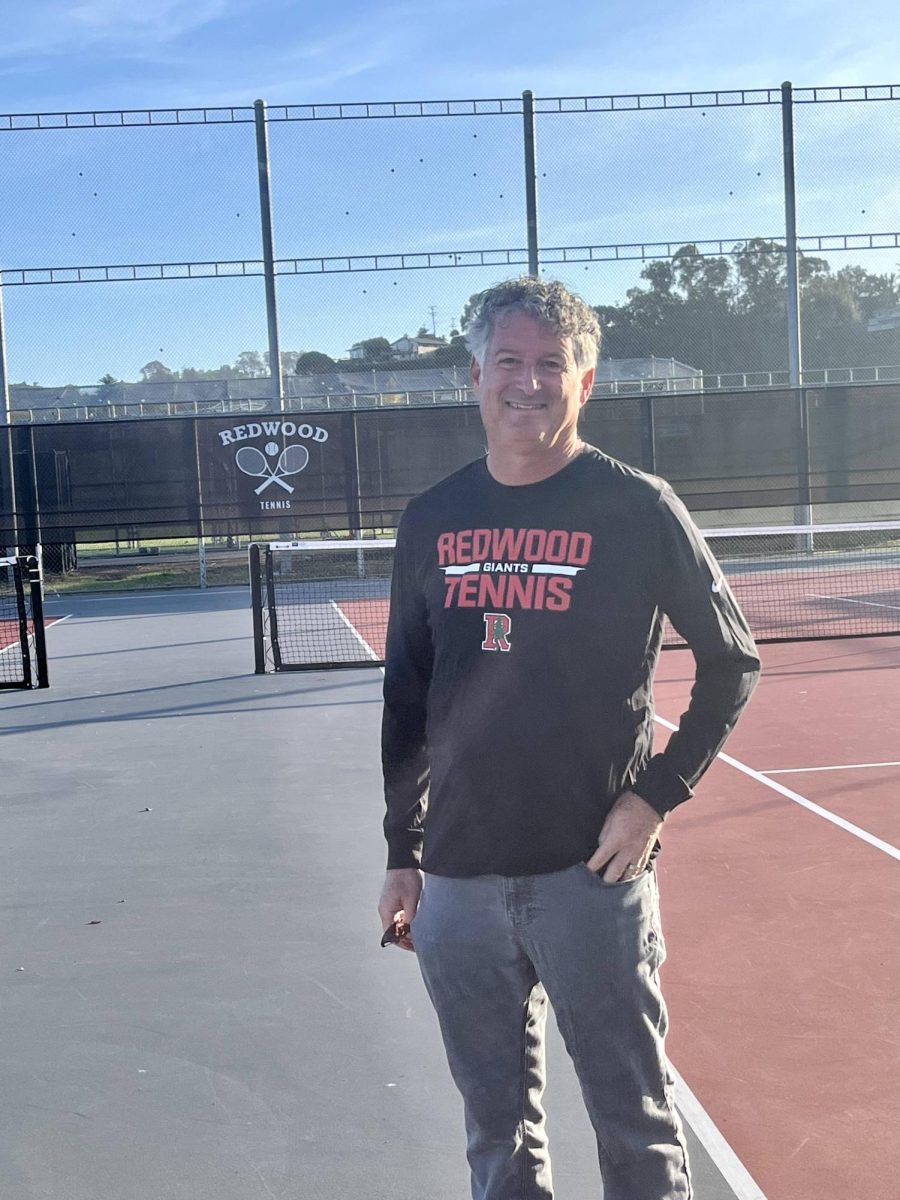Born prematurely at 24 weeks, freshman Sean McGee weighed one pound, seven ounces—about the same weight as seven of the Bark newspapers you may be holding right now.
Years later, McGee is still plagued by his early birth, suffering from severe visual impairment that impacts nearly every aspect of his daily life. But he also possesses a heightened sense of hearing, the ability to distinguish exact musical notes—a gift known as perfect pitch.
Play McGee a note on the piano, and he can name it. If a car speeds past Doherty Drive, he can hear what type of engine, transmission, and brake system is in the vehicle. And with this computer-like processing of sound—combined with a remarkable imagination—McGee has developed a prodigious propensity for playing stand-up bass, bass guitar, and bass clarinet.

“I feel like I’m at home when I’m playing music,” said McGee, who is currently enrolled in three music classes at Redwood. “I’m able to hear whether a note is flat or sharp and I’m able to tune it so it’s right on the money. I have a tuner inside of my head.”
It’s not only his natural aptitude for hearing sounds that has helped him excel in the music department, but also his creativity and feel for rhythm. Despite being blind, McGee shows no signs of choppiness, no disconnect between his brain’s commands and his fingers’ actions while playing stand-up bass. His hands move fluidly, without pause.
Thanks to hours of practice every week, McGee has engineered his body to function behind an instrument as elegantly as someone with perfect eyesight. Ironically, his hand-eye coordination with an instrument in his hands is better than most musicians in the department.
Junior Max Lukianchikov has witnessed McGee’s perfect pitch and effortless digestion of new music as a fellow member of the Jazz A band, the premier jazz and blues group at Redwood.
“We literally play it through once or twice and he has it down better than anyone in the band,” Lukianchikov said of McGee, who is the only freshman in the ensemble.
Yet, as comfortable as he is while performing on stage, McGee still encounters challenges assimilating into the high school social environment with his physical disability.
“I think the hardest part is not seeing people,” McGee said. “That’s tricky. I’m always waiting for my friends, and I don’t know where they are.”
Lunch often serves as a prime example.
“Sometimes a friend shows up. Sometimes I eat alone,” McGee said. “If I’m in a bad mood, I’ll play a little music and it cures me up a bit.”
When he’s not performing with one of his several ensembles, McGee enjoys listening to and identifying different cars. McGee owns a tape filled with scores of pre-recorded car engines, enabling him to put on a headset and fantasize about high-speed racecars and classic automobiles whenever he feels the urge.
“What I’m interested in is the sound of the engine,” McGee said. “The trucks have different engines, so I’m always listening to the ones that have a lion roar to them. The classic ones.”
While McGee’s lack of sight limits his mobility, it has also contributed to his seemingly boundless imagination. He is constantly creating new mental images and concepts, forming new ideas without being constricted by what he sees. His inability to judge others based on physical appearance has provided him with a unique open-mindedness.
For McGee, it’s all he’s ever known. And, whether there’s a bass or white cane in his hands, he will continue to keep his jovial rhythm, never losing his signature cheeky grin along the way.




